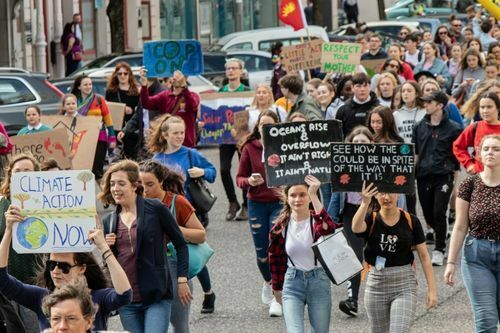Table of Contents
Introduction
Democracy is one of the most successful political ideas in the world. With the power of democracy, ordinary citizens have a fundamental role to play in deciding who governs a country and how it is run.
In a democracy, the rulers are elected by the people and the final decision-making power resides with those elected. This form of government is based on free & fair elections where those in power have a fair chance of losing.
Understanding everything there is to know about the features of democracy can give you the information needed to make important political decisions.
Keep reading to learn more!
What are the salient features of democracy?
“Democracy is when the Indigent, and not the men of property, are the rulers.” – Aristotle
One of the most significant concepts that have reigned throughout the history of politics is that the voice of the public is never louder than when they hold the right to vote.
Some of the most important features of democracy are below!
Frequent and fair elections
One of the most fundamental features of democracy is that every democratic country must hold elections periodically. These elections are a platform for the public to voice their opinions and are the primary mode through which the government can control and change.
A democracy facilitates by impartial and transparent elections that conduct regularly. These features are key in imparting voting rights to every adult citizen in the country.
Each vote in a democratic election has value, and every single vote must be of value. This means that every vote should carry the same weight in electing representatives.
This is an important criterion that is the cornerstone of democracy. Countries that do not provide voting rights to certain social groups are, therefore, not considered democratic.
Freedom of expression

Among the different features of democracy, freedom of expression is a concept that directly influences political expression.
With freedom of expression, the citizens of a democratic country can express themselves freely and publicly on a broad range of relevant political subjects. Citizens can and should share their opinions without the fear of punishment.
The voice of the public is critical to the ruling party and is, therefore, allowed to flow freely. The citizens of a democracy have the freedom and room to formulate a wide range of expressions and ideas.
An important point to note is that the citizen of a democratic country can make independent decisions based on their discretion. However, these decisions should not pose a threat to the law or any other person.
Independent sources of information
Independent sources of information are among the features of democracy that directly influence sources of political information.
This specific feature emphasizes that there are different sources of information that are not under the control of the government. These sources are also not under the country of any singular group.
The sources of political information have the right to publish and disseminate information. This right protects by law and all citizens have the freedom to seek out and use these sources.
The representation of minorities
Every country in the world has minorities that have emerged as the result of a long history of political activity. The representation of minorities is, therefore, one of the most prominent features of democracy.
This feature gives equal citizenship rights to each of its citizens. The oppression or exclusion of minorities is abhorred in a democracy. Additionally, the legal authorities of the country should assist minorities in holding an equal status of livelihood in every possible way.
There are some democracies around the world that also reserve a portion of their representative positions for minority groups. The remaining positions are free for contention.
Collective council responsibility
Collective council responsibility is one of the most important features of democracy. This feature states that it is the responsibility and duty of the elected government to work in the favor of the general public.
The entire council of the party is collectively responsible for the different political acts that perform during their session. The responsibility for a certain action is not born by a single leader alone.
Such a form of government, therefore, allows decision-making by the whole council and not just a single individual.
Independence of judiciary
Independence of the judiciary is among the most pivotal features of democracy that set the boundaries for how the judicial system operates.
The acts, laws, or opinions passed by the judiciary are under no influence by any legislative authority. Each of the implemented acts is established with an independent judicial decision.
The judiciary is, therefore, free from any resistor of the legislature and the executive. This body of a democratic country has to be truthful and is tasked with delivering justice as impartially as possible.
Key takeaways
- Democracy is one of the most powerful political concepts that influence several governments across the world.
- Understanding the features of democracy can play an important role in helping you shape your political decision-making process.
- The different features of democracy are designed to help global citizens identify and exercise their rights as countrymen.
Was this blog informative? If yes, please share your thoughts in the comments below. Click here to reach out to us for more information on the features of democracy. We would be happy to assist you with your queries!
Liked this blog? Read next: Books for UPSC | Top 10 books to help you ace your exams!
FAQs
Q1. What are the different types of democracies?
Answer – The two most common types of democracies are direct and representative. Additionally, variants such as socialist, constitutional, pluralist, parliamentary, liberal, ad participatory democracies also exist today.
Q2. What is the definition of a dictatorship?
Answer – A dictatorship is defined by one person or group that singularly rules a population.
Q3. Who said, “Democracy is Government of the people, by the people, and for the people”?
Answer – “Democracy is Government of the people, by the people, and for the people” was a famous quote by Abraham Lincoln.






